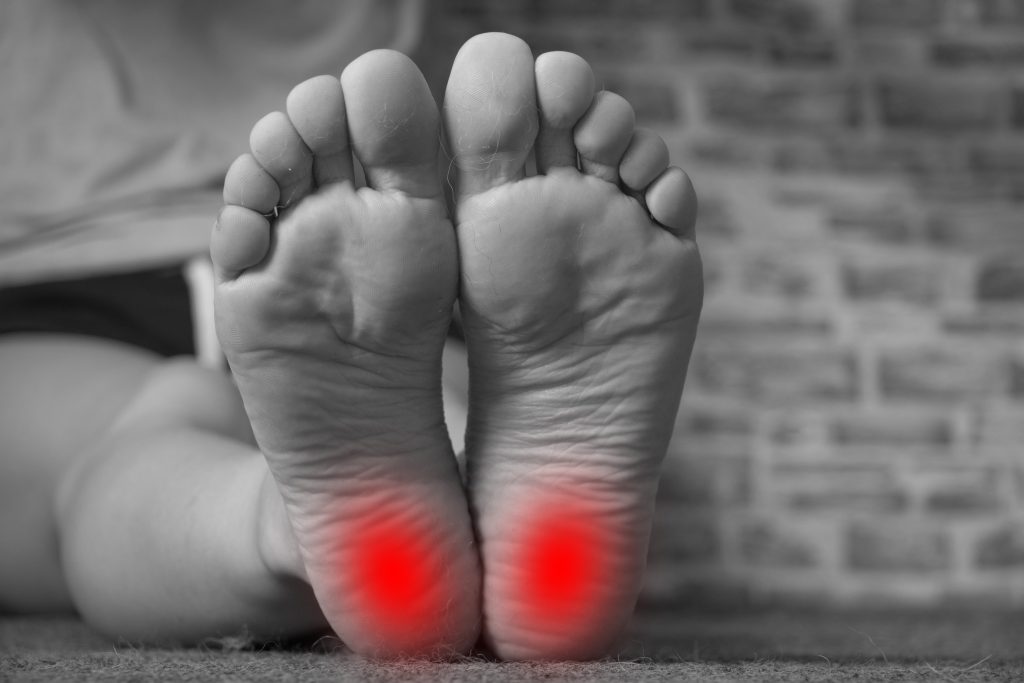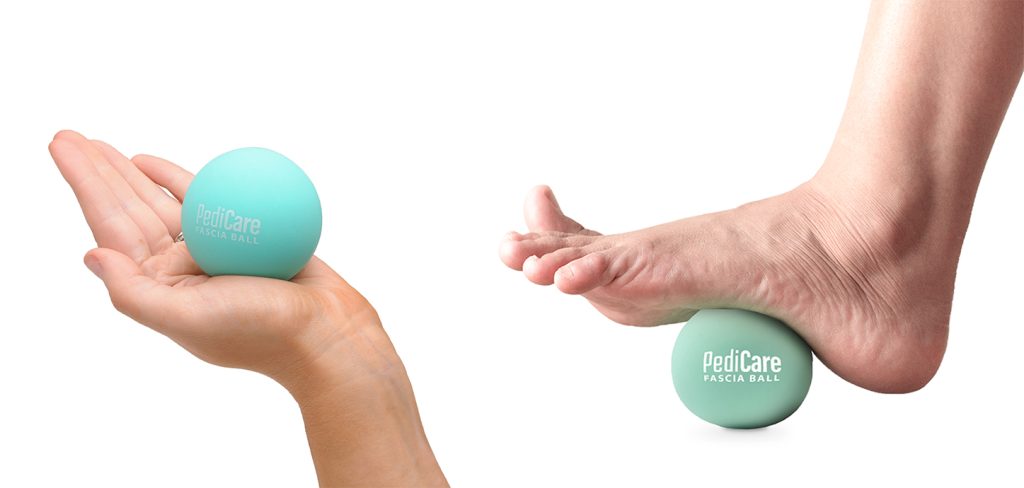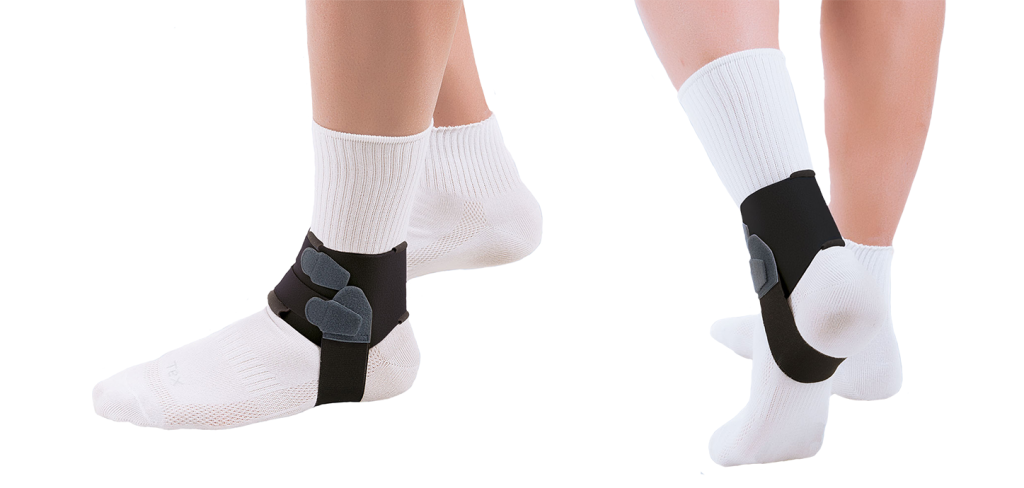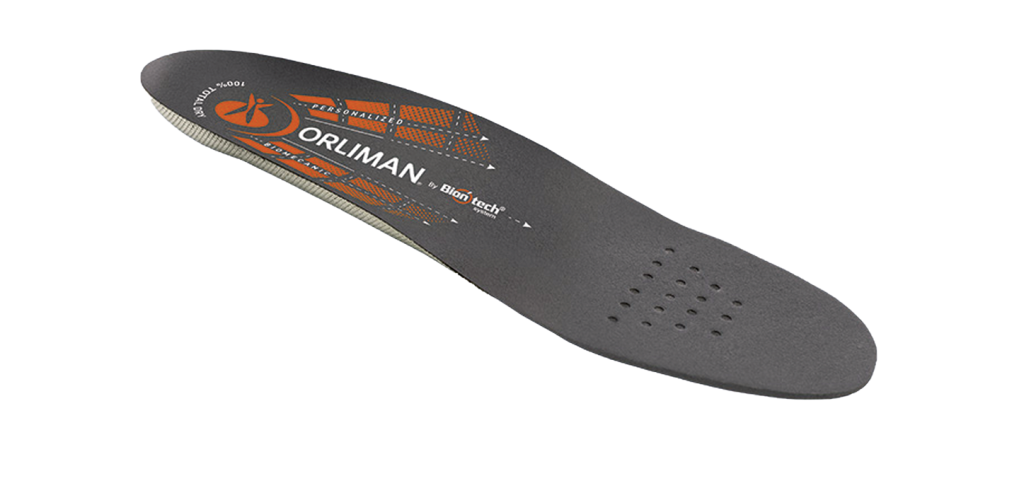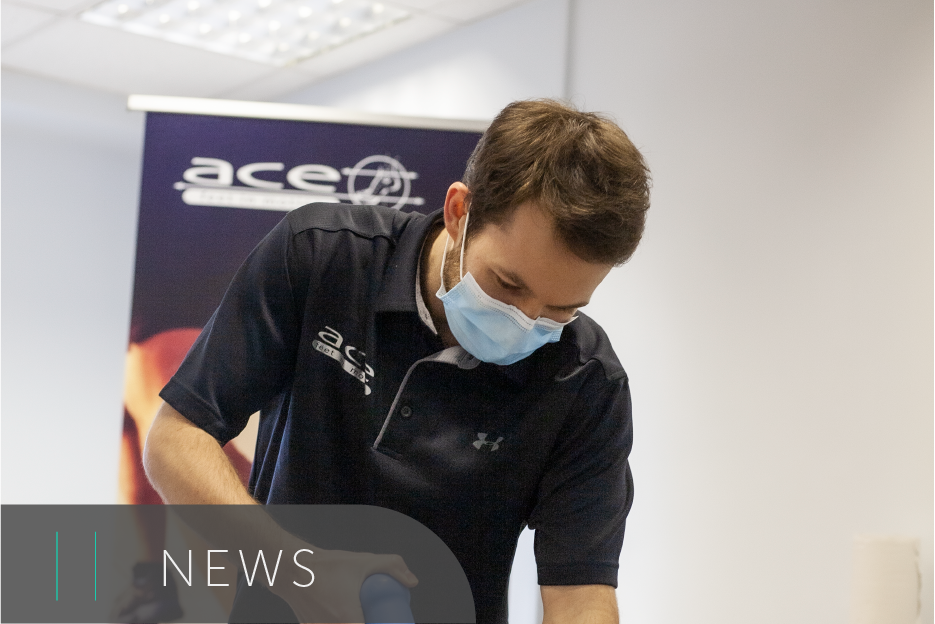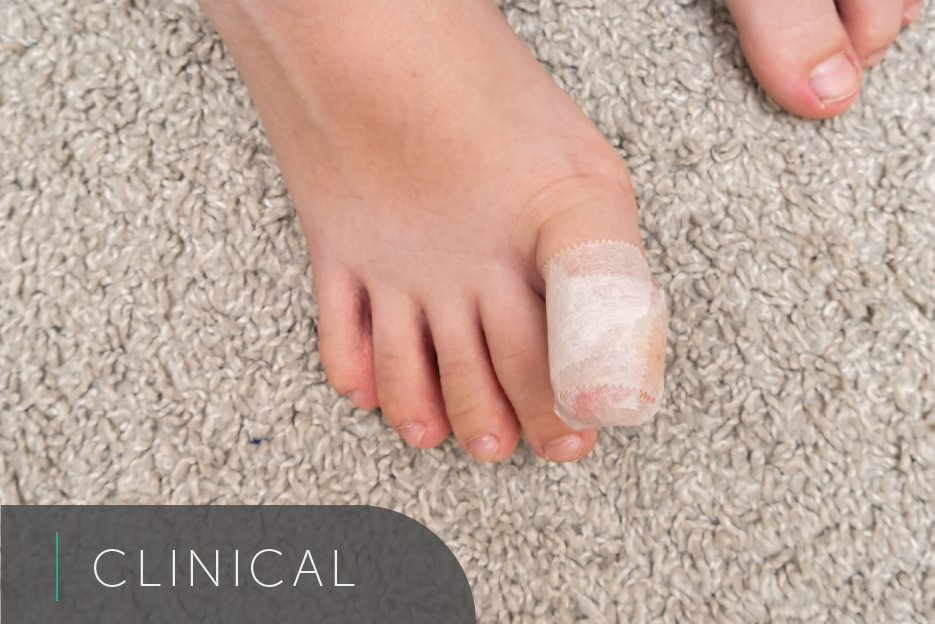
Plantar fasciitis is most common in 40-60 y/o and around 1 in 3 people can get it.
What is Plantar Fasciitis?
Damage to the fascia that connects the heel and toes (Plantar Fascia) causes Plantar Fasciitis. The plantar fascia originates in your heel and fans up the foot in 3 sections and inserts into the base of your toes. The plantar fascia stabilises and supports the foot when standing and walking. It stores energy for propulsion and acts as a shock absorber. Plantar fasciitis is most common in 40-60 y/o and around 1 in 3 people can get it! Our team of experienced HCPC registered Podiatrists specialise in Plantar Fasciitis Treatment.
Common causes/symptoms of Plantar Fasciitis
The main symptom of plantar fasciitis is pain on the bottom of your foot, around the heel and arch.
It’s not always clear why this happens but you may be more likely to get plantar fasciitis if you:
– Recently started exercising on hard surfaces
– Exercise with a tight calf or heel
– Overstretch the sole of your foot during exercise
– Recently started doing a lot more walking, running or standing up
– Wear shoes with poor cushioning or support
– Are very overweight
– A sudden increase in activity levels
– Ageing, more common in over 40s
What are the best Plantar Fasciitis Treatments?
We advise patients on how to ease plantar fasciitis. These include resting and raising your foot when you can. Also, wearing good fitting, supportive footwear and use supportive insoles or heel pads in your shoes.
Other options are:
– Apply ice and heat. Ice for 5 minutes, directly followed by 5 minutes of heat (hot water bottle) couple of times a day.
– Rolling your foot, using a fascia ball / cold can / frozen water bottle(plastic), need to apply some weight when doing this.
– Orthotic support supportive footwear with fastening
– Rehabilitation programme – includes loading the calf, feet and plantar fascia
– Over the counter NSAIDS (non-steroidal anti-inflammatory drugs) e.g. ibuprofen can help reduce pain, won’t cure it but will help reduce pain.
Other Plantar Fasciitis treatment options are:
– Gait analysis and Orthotic therapy by a HCPC registered Podiatrist
– Shockwave therapy
– Injection therapy – provides temporary pain relief
– Surgery – release the plantar fascia (last resort) but if it is chronic then surgery may be less successful
If pain does not improve within 2 weeks that you seek healthcare advice.
Prevention of Plantar Fasciitis
One way of reducing the risk of Plantar Fasciitis is to wear good quality, well-fitting shoes that have good cushioning, fastening and shock absorption.
Make sure you replace your trainers when they are wear out. Trainers should get approximately 400 miles out of them before you need to change them.
We recommend that you introduce and increase exercise gradually. A sudden increase in activity will lead to an increased risk of becoming injured.
Product recommendations
Fascia Ball
The PediCare Fascia Ball is designed for rolling out the fascia and providing trigger point therapy for comfort. It also helps release tension in the fascia caused by trauma or inflammation. Using the Fascia Ball will relieve tension within the foot and is used to stimulate and desensitise the plantar fascia.
Plantar Fasciitis band
The Plantar Fasciitis band is an anatomically designed velour and elastic orthosis and is an effective method of Plantar Fasciitis treatment. Its low-profile design applies targeted pressure to the plantar fascia to alleviate discomfort and is easily accommodated in most footwear.
Bio-mech Insole
Constructed from a heat mouldable EVA compound and finished with a ventilated soft top cover. This product conforms to unique contours of the foot through the application of heat, using a microwave.
Shaped to offer enhanced arch support and optimum comfort with a trimmable forefoot region that ensures the insoles are easily accommodated in most footwear.
If you are experiencing foot/lower limb pain seek advice from a healthcare professional. Feel free to contact us here at The Healthcare Hub on 02922 527 897 or email us on enquiries@healthcare-hub.co.uk for advice and recommendations or to book in with one of our experienced HCPC registered Podiatrists.
Supporting your local community
